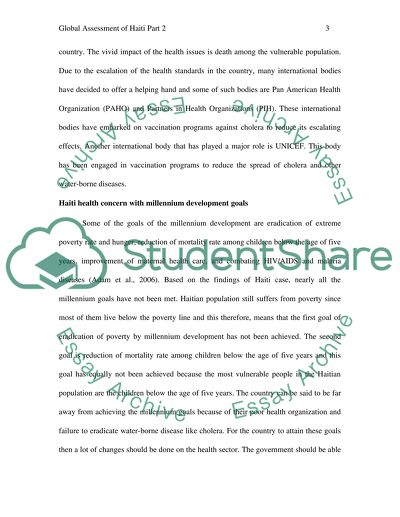Cite this document
(“Global Assessment of Haiti Part 2 Research Paper”, n.d.)
Global Assessment of Haiti Part 2 Research Paper. Retrieved from https://studentshare.org/nursing/1484904-global-assessment-of-haiti-part
Global Assessment of Haiti Part 2 Research Paper. Retrieved from https://studentshare.org/nursing/1484904-global-assessment-of-haiti-part
(Global Assessment of Haiti Part 2 Research Paper)
Global Assessment of Haiti Part 2 Research Paper. https://studentshare.org/nursing/1484904-global-assessment-of-haiti-part.
Global Assessment of Haiti Part 2 Research Paper. https://studentshare.org/nursing/1484904-global-assessment-of-haiti-part.
“Global Assessment of Haiti Part 2 Research Paper”, n.d. https://studentshare.org/nursing/1484904-global-assessment-of-haiti-part.


